Woche gegen Rassismus 2019

"We make our own rules" Parsnip on reframing 1960s Pop
Mit ihrem zweiten Longplayer 'Behold' haben die Australier:innen von Parsnip einen beinahe orchestralen Pop Opus aufgenommen, welcher eine ganze Palette von Klangfarben von 1966-1968 zusammenmischt. Dennoch bewahren sie sich einen sehr zeitgenössischen Geist. Wir haben sie in Bern kurz vor ihrem drittletzten Auftritt ihrer ersten UK/EU Tour interviewt. von Mirco Kaempf
Parsnip: "We make our own rules"
Vor ihrem ersten Konzert in der Schweiz im ISC Bern nahmen sich Parsnip Zeit für ein kleines Interview
Sometimes you just never want to wake up. Such as last thursday night, 25th of october at ISC Bern: As Parsnip takes the stage the curtain is thrown wide open and the last line check before the concert is rambuciously melting into the beginning of their 3rd to last gig, before the band finally catches their plane(s) back to their homeland, Melbourne Australia. It all seems naturally improvised and impromptu but it is merely a testament to the appeal of the four musicians, who are not performing some roles and abide some rules, but who are genuinely travelling back and forth through wormholes and parallel universes. At least to the person writing up these lines it seems the canon of the 1960s is spitting out some new notes and melodies tonight. All of a sudden it's The Monkees who are on stage, chattering about to each other in their excited bestfriendy-sitcom-manner, you get some evil hoodoo-ing guitar licks that are reminiscent of a Seeds manner, but blossom into indie-esque bouquets of choral harmony, straight from the land of the Masters Apprentices but more like A Left Banke. Don't get me started on Smile!, Pet Sounds or Paris' Höfner Bass!
We are chatting to Carolyn (Drums, vocals), Paris (Bass, vocals), Stella (guitar, vocals), Bec (keyboard, vocals). Behold was released in April 2024.
If you were to meet Ray Davies in a pub, what question would you want to ask him?
Oh, my God!
You've got to give us some time!
Carolyn: I would say, "what is your favourite song of all time?" I would be very curious.
Are you not afraid that this is too much of a cliché question?
Carolyn: [laughs] Look, this is the first question that's popping into my head, so that's what I would say, because I'd be put on the spot.
Paris: Like "How's it going? [shrieks]"
Stella: I would say, do you want to hang out later? Or do you want to go get a beer or something? Do you want to be my best friend? Do you looove us?
Carolyn: Do you love Parsnip?
Stella: What's your favourite colour?
All right. I can tell there is some love in the air when it comes to Ray Davies and the Kinks! Would you also consider Parsnip a 60s band to some extent?
Carolyn: I feel like we probably started out, like, that was our common interest, like, 60s garage, but it sort of moved into other realms since then.
Paris: Also, it seems like he can kind of write any song and we'll... I don't know, it doesn't necessarily have to be, like, a garage song. It just kind of becomes one of our songs, yeah.
Stella Also, we don't necessarily say that as much as other people say that. I think it, for sure. I think it's 60s. I want it to be 60s, but I don't know if we said that. Someone else. The Paisley maybe.
Well, I mean, the 60s are a really rich universe if you go digging around in it. I'm always amazed that I'm still finding new stuff every day when I'm browsing YouTube. But listening, growing up with 60s music and having your brain shaped by it, I can't help thinking that it is maybe a different experience for me, a white cis male, as maybe for someone who is not a white cis male. And now, more and more, I listen to more of the lyrics and you get stuff like "Woman" by the Emperors. And, in a way, it's really disgusting what those teenage boys sang about, right?
Stella: And grown-up men as well, not just teenage boys.
Did that bother you when you were getting into that, or was that just normal?
Paris: I think I was into more of the energy or something. Unfortunately, back then I was just like, da-da-da. I mean, there's a lot of quite offensive things going on.
Stella: Also, it's a little domain for lots of young little straight white boys who are probably quite middle class. So it's quite exclusive, which maybe when you're 15, you don't really think about. But I'm sure as we all get older, we think about that more. I'm very aware of it now. However, the songs, a lot of them still are so fucking good. But I don't know, the whole universe is a bit irksome, maybe.
Carolyn: I feel like I have such a complicated relationship with all of that stuff, not just 60s stuff, but there's lots of problematic musicians across all eras, even now. It's everywhere. But I think that if I got into something like when I was a teenager and it just hits you so hard, I think that feeling stays in you forever. And even if you find out stuff about someone that makes you think about them differently, I feel like the music is still really powerful. For better or for worse, that's just the way it is for me. But I think maybe if I am getting into new music now, I might be a little bit more critical and it's a bit of a barrier. I'm not just going to consume it unquestionably.
Stella: And the benefit of knowing all this now is that we can take what we like from that stuff and re-put it through the 'sausage machine' into a way that we like the sound, but we can say shit that they're not saying, that no one got the chance to say then, maybe. And maybe people were, you know, in niche pockets, people were saying good things. But we can take the sounds that we like. It's like, post-modern, you know. Re-appropriating things, re-contextualizing things. The sounds we like, but the words we don't like, so we can make a collage of all the things we do like.
It's like hypnagogic pop or something. That's a phrase that people use when talking about Ariel Pinks music. (Of course, that's another problematic person.) But it's like a really contemporary discussion to have: How much can you listen to the art and how much do you just have to realize that the person who created the art is not holy at all, be that Jackson Pollock, be it Michael Jackson and so on.
[at this point Bec (Keys) joins the conversation]
So seeing as the palette that you're drawing from is so rich, let's talk about your current record, Behold. I saw that it's like having songs on there that you've been carrying around since 2019 and you had several recording sessions.
It's a very rich sound, a really warm production, I think. What instruments are on this record?
all at the same time: It's the same.
I guess it's the usual.
There's more.
There is more.
Plus more.
Yeah.
Usually plus more.
Stella: Yeah, me and Paris, I think we both play extra. I play saxophone on it. And on most recordings before this, I probably only played just electric guitar. But on this one I did nylon string, 12-string acoustic, saxophone, and Paris did...
Paris: I played harmonium on some songs, so like right at the end there's a chant. And then on Turn to Love, there's also harmonium and kind of layers of all kinds of things on there as well.
And piano.
Bec: Oh, yeah, because you work with the upright piano, clapping, cheering.
Carolyn: It feels like there's more textures going on in this one.
It's almost orchestral pop, if you put it that way! You said you started out really into like 60s garage rock and pop. And if we are counting the years, I guess Behold is a record from 1967, perhaps.
Paris: Yeah, that sounds pretty good.
Stella: We started in 65, now we got to 68. We got all grapefruit.
Are you not afraid to become too proggy at one point?
Multiple: No! Never!
I don't know if you agree, but usually when you talk about psychedelic music, then you think of 10-minute fuzzed-out guitar solos, which I think is such a drag. But you kind of come from the melodic, the harmonic side, like a left bank, possibly.
Stella: Also the proggy 10-minute shit, that is like the cis-white male version of prog. But we can make a whole new version of prog music that doesn't have to be what they told us it has to be. It doesn't mean we're not living in 68 or 69 or 72. Great year. Whatever we feel. We write the rules.
Now you've been touring with this record, Behold. Which is a melodic, psychedelic Opus almost. Looking back at the process of recording it in different sessions, overdubbing, texturing, Is there stuff that you would add to it, if you were to do a Behold Part 2 in a way?
Carolyn: Let's do a let it be and get some full orchestral shit, and just ruin the whole thing. [laughter] I like it how it is. I feel like I would just want to keep moving on to the next thing. I wouldn't want to revisit something we've already done. That's just how it exists. That's how it is.
Stella: I think every other recording we've done, I would go back to it and redo it a thousand times over, except for Behold. I wouldn't change it. But every other release, yes, I would change. This one is the one that I think we got right.
Bec: I think sometimes with the live songs, we're finding songs that can bleed into the next one. But maybe that's more like a theatrical thing we can do. Just something that exists in the live version only, perhaps. I guess things always feel a bit faster when we play it live, a bit more rocking.
You've played almost every single day of October. How was your experience touring in Europe in general?
Carolyn: It's been good. I feel like whenever you go on a long tour, it's always kind of up and down. But I feel like we've been really lucky. The shows have been consistently quite good and always met interesting people every night. The bands have been really great. [Tramhaus, Leopardo] There hasn't been any total dud shows, which there usually always is.
It's just been nice to see other scenes in other parts of the world that kind of are similar but different to what is at home and meet other bands and talk to them about how DIY and independent music runs in their town. Because it's sort of a bit different everywhere. But then also you meet people where you're like, oh, we're just into the same things, but we live on the other side of the planet.
It's a very soothing sensation.
Carolyn: Yeah. It makes the world feel big and small at the same time. It's a strange feeling, but it's nice.
So as a touring, record-producing, cool band, let me ask you, is there anything that you would like to say about the life as a gigging musician that's not been talked about enough maybe?
Stella: I think when you go on tour and you get home and you say, I'm tired or tour's rough sometimes and some people go like, 'oh, you should be really grateful to be on tour and I wish I could be doing what you're doing'. It's like, yeah, but we didn't do this by accident. It's not like we haven't tried for, like, been doing this shit for like a decade or more. In fact, way more than a decade. So I think people's like almost dismissive thing about how much they wish they were doing it. But we're not like on holidays. It's not easy. It's fun and it's rewarding. But it's not lucrative, like it's not financially beneficial. It's not easy. It's not a holiday. But we love doing it. That's why we do it. But I think people could tone that down because it kind of gives me the shits when people say that.
Carolyn: It's definitely like a super challenging thing, but it's no accident.
Stella: Exactly.
Carolyn: Like we have worked really hard and like we've had tours cancelled and we've had to reschedule and we've, you know, it's a lot of organising to get these things to happen. And we have a great, like, team of people that are helping us, but it is a very DIY operation. Like we don't have a manager or anything. So, yeah, it's...
Stella: And it's not our job.
Carolyn: Yeah, we all have our jobs. We leave work to do this.
I guess if you break even, you're lucky.
Carolyn: Exactly, yeah.
I think that's all we want to do is just not to have to put any of our own personal money into it and just have it as a self-sustaining thing.
Stella: Which is hard. It's so hard. It's not normal for lots of people that we know to lose a lot of money.Touring is really expensive.
Carolyn: Yeah, especially post-COVID as well. Like, it's doable, but it's definitely, like, yeah, it's difficult. Especially coming from Australia. It's a long way away.It costs a lot of money.
Bec: I also think music is one of, like, fewer art forms, where you think of other art things where, you know, if it's people rehearsing for a performance, they often get paid for rehearsals even. But that's just, like, unheard of to think of even being paid.Yeah, we pay, you know. I think music sometimes gets a bit forgotten that it's just... Maybe people take it for granted that there's always going to be music there. Or, like, you go out to a pub, there's always going to be music. But, yeah, it's not the money-making and... You have to really love it. But it gets a bit forgotten, I think, sometimes.
Parsnip, the social workers, basically!
So, the last, last, last question I have to ask [for Mainsream] every time: If you were DJing and the peak moment is coming up and you have to drop a certain tune, which tune is Parsnip dropping?
Whoa. [everybody starts discussing it at the same time]
It's a triple tie between the Thong Song [this one?], Deceptacon by Le tigre, and Take Me Out by Franz Ferdinand.
Yeah, mash-up of all three.
Yeah, we'll have three decks at the same time.
Yeah, yeah.
That's very Parsnip, just have three things going on at the same time.
Ray Davies will be disappointed.
Oh, yeah, sorry.
Stella: No he won't be!!
Thank you very much, Parsnip, for chatting to me here and there.
[Full disclosure: I drank too much beer that night and hope I got the names right of who said what. Pretty sure I got it right. But don't bet your soul on it.]

Die Woche
Lesungen, Theater, Diskussion, Musik, Ausstellungen und vieles mehr: Die Woche gegen Rassismus 2019 in Basel bietet ein vielfältiges Programm, sie findet statt von: Montag, 18. März bis Sonntag, 24. März 2019
Radio X setzt in Zusammenarbeit mit unterschiedlichen Organisationen und Beteiligten ein Zeichen gegen Rassismus und andere Formen von Diskriminierung. Ziel ist es, die lokale Bevölkerung für das Thema zu sensibilisieren und gemeinsam in einen Dialog zu treten.
Während der ganzen Woche strahlt Radio X jeweils um 11:30 Uhr und um 16:30 Uhr thematische Beiträge aus.
Flyer Woche gegen Rassismus in Basel 2019
Medienmitteilung Woche gegen Rassismus 18.-24.3.19 mit Programm

Das Programm
Montag, 18. März 2019
Forumtheater "Sans Frontières" - Ein interaktiver Theaterabend zum Thema Diskriminierung und Rassismus.
19.30 Uhr, KLARA (Clarastrasse 13)
Eintritt frei.
Dienstag, 19. März 2019
Uni von unten: «Alltäglicher Ausnahmezustand: Racial Profiling in der Schweiz» mit Mohamed Wa Baile, Sarah Schilliger und Claudia Wilopo
19 Uhr, Internetcafé Planet 13 (Klybeckstrasse 60, 4057 Basel)
Eintritt frei.
Mittwoch, 20. März 2019
Liveübertragung Radio X, mit Interviews live vor Ort: Abendschule Import, Bla*Sh, Theater Niemandsland, Kulinarisches von Schnaboule Schnaboule und Musik zum Thema «Migration und Musik» mit Leila Moon.
17-22 Uhr, Keck Kiosk (Kaserne)
Ausstellung*: Bundes(asyl)lager- Zunehmende Isolierung und Kontrolle im Migrationsregime Schweiz
ab 19 Uhr in der Carambolage (Erlenstrasse 34, 4058 Basel)
Donnerstag, 21. März 2019
Podiumsdiskussion «Racial Profiling» mit szenischen Sequenzen des Theaters Niemandsland.
Auf dem Podium: Michel Hostettler (Community Policing Kleinbasel), Tobias Burkhard (Ausbildungsleiter KaPo BS), Nahom Mehret (Schweizer, geb. in Eritrea), Yvonne Apiyo Brändle-Amolo (SP Politikerin Zürich, Künstlerin).
Moderation: Bernard Senn, SRF
Mit dabei: BastA!, STOPP Rassismus u.a.
19 Uhr, Offene Kirche Elisabethen
Eintritt frei.
Ausstellung*: Bundes(asyl)lager- Zunehmende Isolierung und Kontrolle im Migrationsregime Schweiz
ab 19 Uhr in der Carambolage (Erlenstrasse 34, 4058 Basel)
Freitag, 22. März 2019
Bla*Sh, Legion Seven, Brandy Butler (CH)
Mehrstimmige Lesung, Performance, Konzert, Büchertisch
19 Uhr (Doors: 18.30 Uhr), Rossstall II, Kaserne Basel
Eintritt frei.
Ausstellung*: Bundes(asyl)lager- Zunehmende Isolierung und Kontrolle im Migrationsregime Schweiz
ab 19 Uhr in der Carambolage (Erlenstrasse 34, 4058 Basel)
Samstag, 23. März 2019
Afrika-Stadtrundgang des Zentrums für Afrikastudien
The tour will take place in English and is free of charge. Reservations are requested but not required.
14 Uhr, meeting point: at the pyramides in front of the Offene Kirche Elisabethen
Offener Hörsaal: Interaktiver Parcours**, über Hürden und Weichen auf dem schweizerischen Bildungsweg
16.00-18.30 Uhr, Foyer Junges Theater Basel
Eintritt frei.
Ausstellung*: Bundes(asyl)lager- Zunehmende Isolierung und Kontrolle im Migrationsregime Schweiz
ab 19 Uhr
Input: Wie die Schweiz Migrant*innen 2019 isoliert und verwaltet.
20 Uhr in der Carambolage (Erlenstrasse 34, 4058 Basel)
Sonntag, 24. März 2019
Afrika-Stadtrundgang des Zentrums für Afrikastudien auf Deutsch
14 Uhr, Treffpunkt: Pyramiden-Platz (Elisabethenstrasse)
Reservierung erbeten, aber nicht zwingend erforderlich.
Eintritt frei.
* Die Ausstellung beschäftigt sich mit der Neustrukturierung des Asylverfahrens und der Einführung der Bundeslager in der Schweiz. Mit der sogenannten Beschleunigung der Verfahren sollen Menschen effizienter verwaltet und ausgeschafft werden. Dafür nimmt das Staatssekretariat für Migration (SEM) Bundeslager in Betrieb, welche nicht nur die Unterbringung, sondern auch das gesamte Verfahren unter einem Dach zentralisieren und vereinheitlichen. Diese Praxis isoliert die betroffenen Menschen noch stärker vom Rest der Gesellschaft und lässt noch weniger Raum zur Selbstbestimmung. Um die Lagerpolitik umzusetzen, baut der Staat auf die Mitarbeit von Privatfirmen und NGOs.
** Bildungsparcours: Sprichst Du ausreichend Deutsch, um in der Schule mitzukommen? Wirst Du bei/auf deinem Bildungsweg unterstützt? Entsprichst Du den Bewertungskriterien des Schulsystems? Reicht das Geld für eine Ausbildung? Bringst Du die geforderten/nötigen Dokumente mit, um eine Ausbildung zu beginnen? Haben alle Menschen in der Schweiz dieselben Chancen auf Bildung? In einem interaktiven Parcours erfährst Du, welche Weichen gestellt werden und welche Hürden es zu überwinden gibt auf dem schweizerischen Bildungsweg. Ähnlich einem Leiter-Spiel, wirst Du, ausgestattet mit einer neuen Identität, unterschiedliche Aufgaben lösen, um Stufe für Stufe deinem Ziel näherzukommen.
Ausstrahlungstermine
Montag 18.3. - Sonntag, 24.3.19, täglich um 11.30 h (Wdh. 16.30 h)
Redaktionelle Beiträge auf Radio X zu diversen Themen in der Woche gegen Rassismus
u.a. mit FIASKO und STOPP Rassismus
Donnerstag 21.3., 18 h & Samstag 23.3.19, 13 h
Sendung X-Plus von Schüler/innen der FMS Münchenstein
Samstag 23.3., 16 h & Sonntag 24.3.19, 10 h
Ausstrahlung der Podiumsdiskussion zu "Racial Profiling" vom Donnerstag 21.3.19 in der Offenen Kirche Elisabethen
Kontakt
tatiana.vieira@radiox.ch
rebecca.haeusel@radiox.ch
Social Media
Die Woche gegen Rassismus wird unterstützt durch:
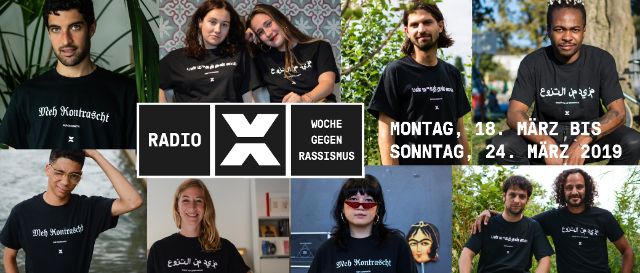


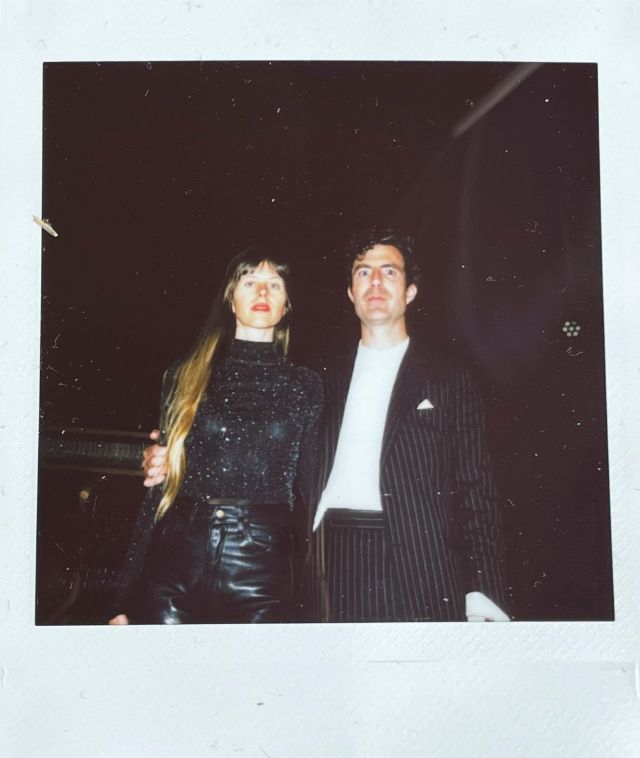
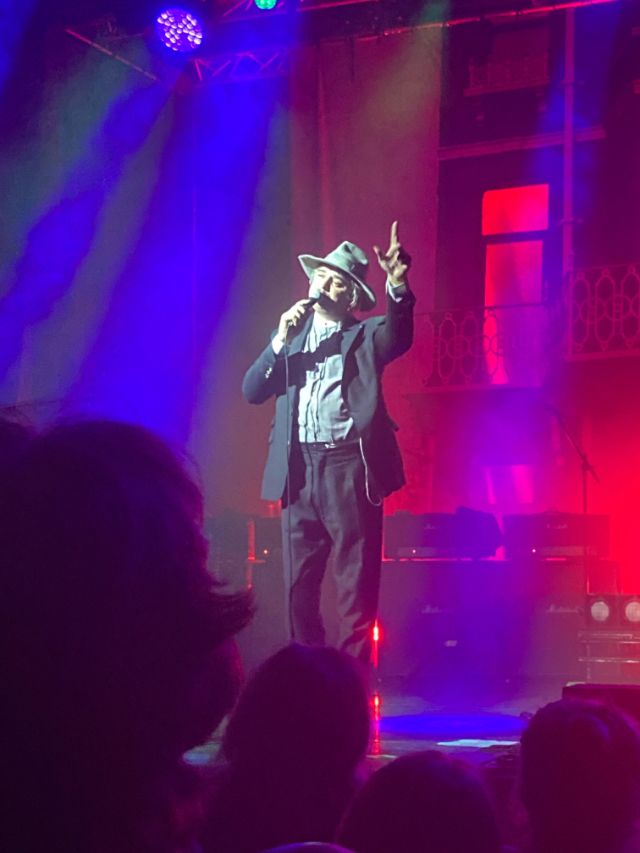
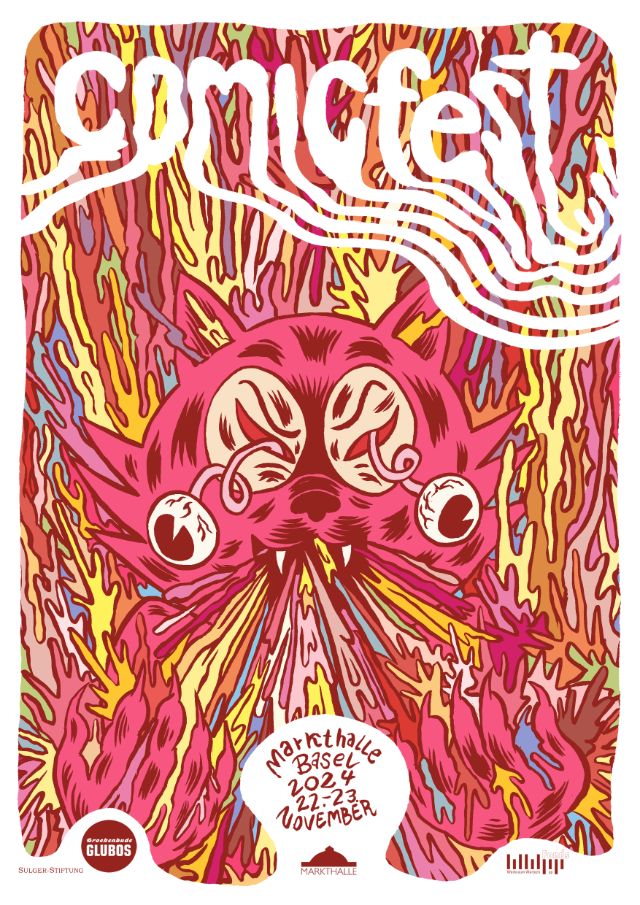
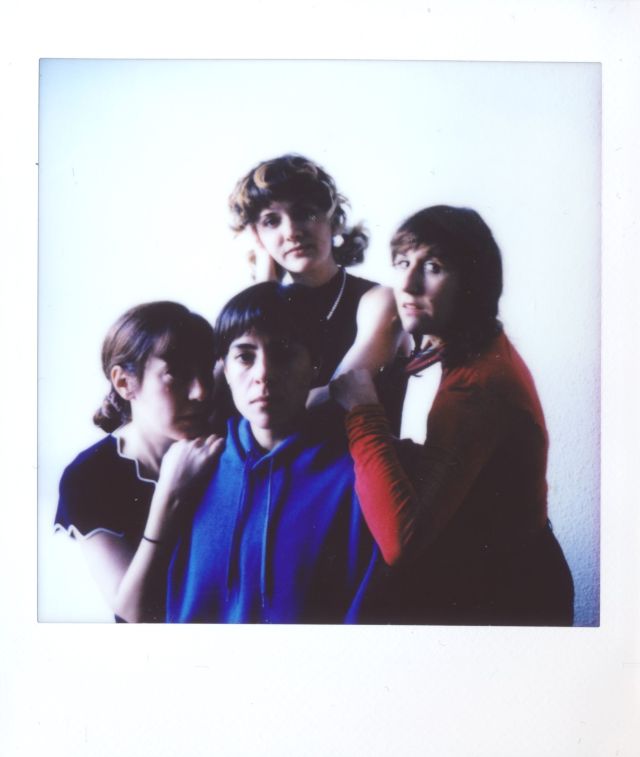
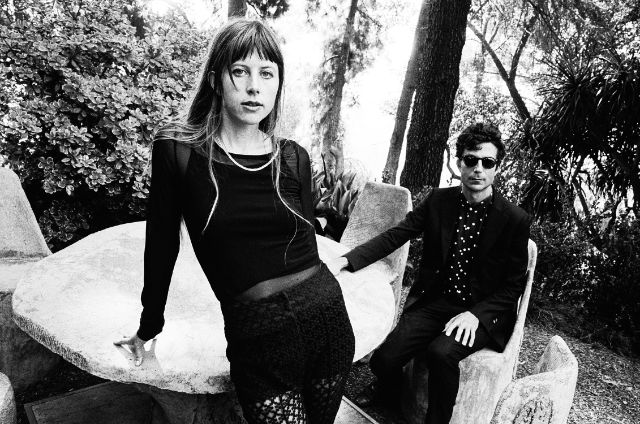




.png/jcr:content/magnolia-medium.png)

